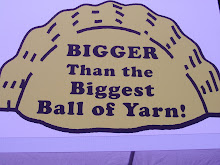I know I've been terribly remiss about posting lately, and I really do want to write a thorough recounting of my recent adventures in Montreal and new plans to hit Costa Rica next month with some girlfriends. However, I have three job interviews this week and a few clients for my side business, so this will simply have to do.
Here's a letter I wrote to the editor of the New Jersey Jewish News that was actually published in their July 2 edition. Would love to get everyone's feedback on both the original article and my commentary. Cheers!
As I read Johanna Ginsberg's article this week, "Synagogues Make Do in Hard Times," I couldn't help but wonder if perhaps there is a silver lining for our houses of worship in this economic miasma. Just flip through the Community section of the New Jersey Jewish News and you'll see synagogues offering concerts, drumming circles, support groups (including one for overeaters which just strikes me as ironic to take place in a shul) and lectures of all varieties.
While I'm sure the congregations arrange these programs in order to attract potential and current members, one has to ask how it fits into their core missions to create Jewish spaces for the community when so many people in said communities cannot afford to participate. With the suburbanization of the American Jewish population in the 1950s, synagogues morphed from small places to pray with a minyan into seemingly holistic paragons of Jewish life. All your needs - literally from cradle to grave - could me met at the synagogue.
That model certainly worked for some, but the presense of the Havurah movement in the 1960s and today's proliferation of small congregations like Kehillat Hadar on the Upper West Side, indicate that a certain authenticity and closeness may have been missing all along.
Maybe the lesson for synagogues from this economic crisis is to not be afraid of small. To welcome intimacy, closeness and friendliness. Don't be afraid to scale back programs to a bare-bones, but high-caliber and high-touch community of worship. As someone who has shul hopped and has yet to find a spiritual home after three years in this community, I would much rather have an option to join a basic congregation for $100 than to pay $1000 for all the bells and whistles I will likely never use.
Much of the Jewish communal world has been caught up in competition with secular institutions and has forgotten the added value they can potentially bring when they stop trying to be something they are not. As the congregations in the article and others in MetroWest and around the country struggle with declining dues and swirling debts, I hope some will be bold and take this as an opportunity to reimagine what the American synagogue can and should be. Who knows, you may even attract some new members?
Monday, July 6, 2009
Subscribe to:
Post Comments (Atom)


No comments:
Post a Comment